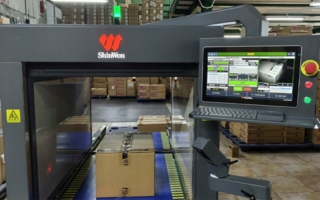21/07/2021 – Supply Chain Act — auf Deutsch lesen
Setlog adapts SCM software OSCA
Setlog adapts its SCM software OSCA to the new market situation. This makes it even easier to implement the Supply Chain Act.
The software house Setlog has always seen the area of Corporate Social Responsibility (CSR) and Supplier Relationship Management (SRM) as part of the entire end-to-end supply chain. The Bochum-based company therefore developed the SCM software OSCA years ago for these areas.
Structurally, the tool has now been adapted to the new market situation as well as to the Supply Chain Act passed by the German parliament on June 11.
The goal is to enable companies to find more precisely fitting digital solutions for their processes, to connect their third-party systems to OSCA more easily and to bring even deeper transparency into the chain.
Setlog replaced the previous OSCA SCM and VCM software with five solutions: Procurement, SRM, Global Logistics, Quality Control and CSR.
Ralf Duester, member of the board, Setlog:
“Globally active companies cannot avoid setting themselves up digitally in their supply chain management. Those who have done their homework also do not have to fear additional costs or increased bureaucracy due to the introduction of the Supply Chain Act.”
He also points out that users of digital SCM tools need not worry about failing due to the complexity of environmental and human rights compliance regulations. “Users of OSCA already have very good tools at hand to manage the complexity both in the area of CSR, and also in the topics of purchasing, supplier management, logistics and quality control.”
Digitize supply chain now
Duester advises companies to use the time until the German Supply Chain Act comes into action, at the beginning of January 2023, to digitize their supply chains: “Every importer should put the topic on its agenda – sooner rather than later.”
He emphasizes that medium-sized companies that supply large corporations should also look into the Supply Chain Act now: “Corporations will secure in new contracts that not only large, but all suppliers comply with the law and that their supply chains are transparent.”
The goal of the Supply Chain Act is to give millions of families, especially in developing countries, better working conditions and opportunities for the future. The new regulations are initially to apply only to companies with more than 3,000 employees from 2023 – and to companies with more than 1,000 employees from 2024.




